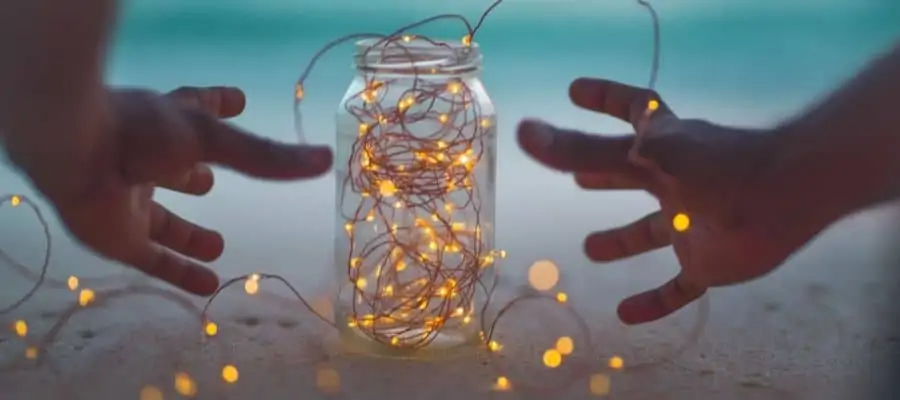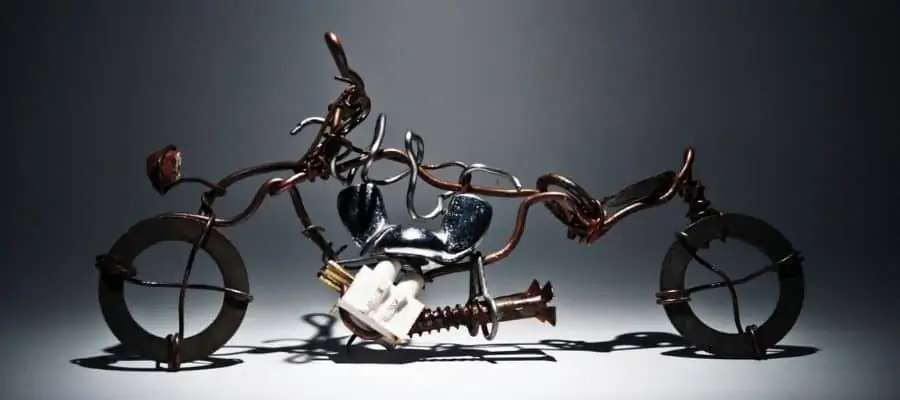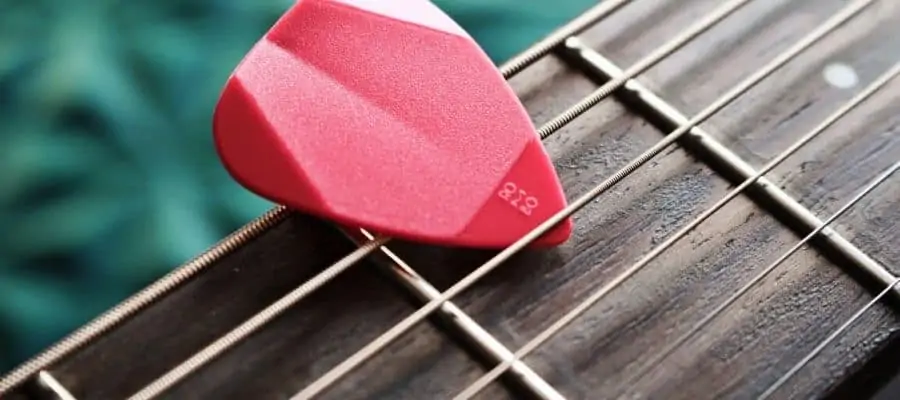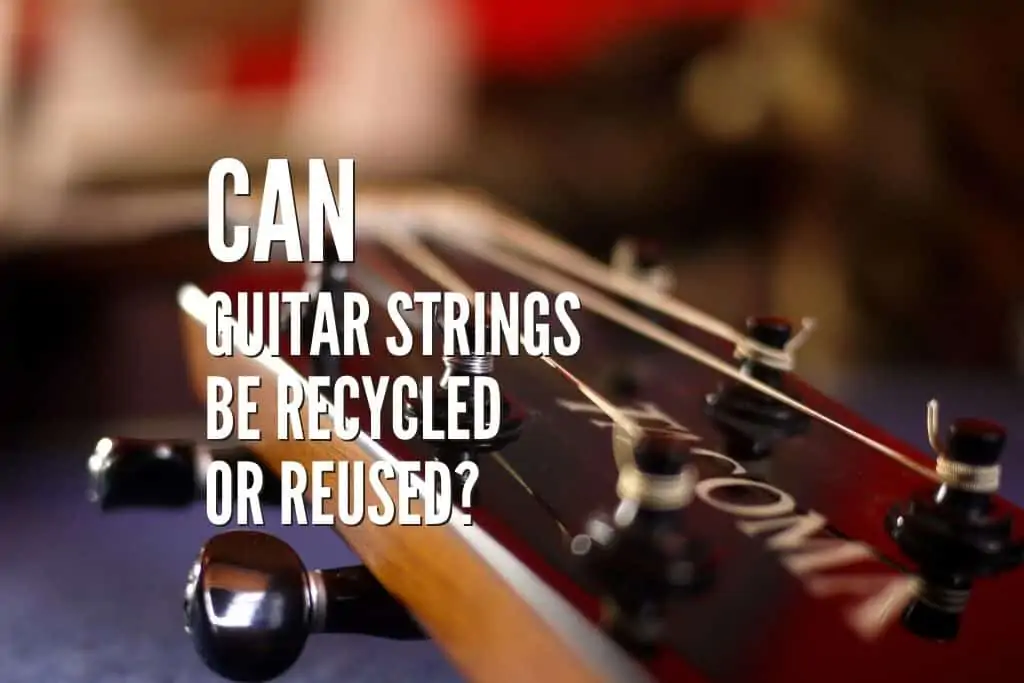Guitar strings come in very different materials. Ranging from steel, nickel, bronze, and many other metals, the process of making guitar strings is a complex one. However, guitar strings don’t last forever and at some point, you will be required to change your strings.
What happens after we change our guitar strings is something we might not think much about.
Nevertheless, since we are living in a world where environmental awareness is a more and more important topic to talk about, I figured a good question we can ask ourselves is: Can Guitar Strings Be Recycled Or Reused?
The answer is, both. You can recycle your strings by joining D’Addario’s industry-wide string recycling program Playback. You can also reuse your strings by boiling them in water or using them as different home-made life hacks.
The whole purpose of this article is to give you some available options to do a small contribution to our environment. The great thing about this is that whether you decide to recycle or reuse them, you benefit from either getting rewards from D’Addario, saving some money, or just feeling good about doing your part for Earth.
These are the available options to recycle or reuse your guitar strings:
How To Recycle Your Guitar Strings

In 2016, American strings and accessories manufacturers D’Addario partnered up with TerraCycle to create a strings recycling program. Their sole intention is to reduce the amount of waste accumulated every year, which amounts to around 1.5 million lbs. in the United States.
This program works for all types of instrument strings, including steel, nylon, and orchestral. Every .25lb of strings earns you 100 Players Circle points, which translates to $1 towards The D’Addario Foundation. It is also very simple to use.
Let me say at this point that unfortunately, this program is only functional in the United States. However, if you gather enough strings, you can ship it to D’Addario’s Player Circle if that is what you desire.
Here are the steps you need to follow to effectively recycle your guitar strings:
Collect Minimum Amount Of Strings
You have to collect a minimum of 2lbs for them to accept your donation. It is necessary to have this minimum to reduce the carbon footprint required to ship strings. 2lbs amounts to around 40 sets of acoustic or electric guitar strings.
Package And Send To Designated Recycling Center

Once you got your 2lbs or more, you can pack them up in any receptacle and ship them to any of the verified recycling centers. You can print your free shipping by signing up at the Players Circle.
Collect Your Reward Points For Goodies
After an estimated 3-5 weeks, you will be rewarded with points through your Players Circle account. You will now be able to redeem said points within Players Circle. The cool thing is you can exchange your points for gear and/or merch.
2020 UPDATE: Due to the Covid-19 situation, this program is currently on hold. Check out Terra Cycle’s web page for further updates.
I would also recommend searching if your country has a specific recycling program for instrument strings. In the UK, company Strings Direct partnered up with The GuitarWrist to reuse instrument strings to create jewelry.
How to Reuse Your Strings On Your Guitar

In terms of reusing your strings, it is actually possible to clean them in a way that they can be reused on your guitar. By boiling your guitar strings, you enable them to expand and thus allow grease, oil, and dirt to come off of them, giving them a longer lifespan.
Interestingly enough, you can also do this process with new guitar strings. This will help with the natural stretching process strings need to undergo, allowing a better tone.
For you to be able to do this process, you will need the following materials: A saucepan or cooking pot, some tin foil, a fork, kitchen tongs, and a cloth towel.
The process for boiling your guitar strings is as follows:
Coil Your Stings
Coil your guitar strings to have enough space on your saucepan or cooking pot. If your guitar strings are new, leave them coiled.
Boil Water
Fill the pan with water. It is preferred to use distilled water to have a cleaner, more thorough process. However, tap water will do the trick as well. Once you’ve done that, place the pan on your stove and put the water to boil
Let Strings Boil For Appropriate Amount Of Time
Once you have boiled the water, use your kitchen tongs to very carefully place the strings inside the saucepan or cooking pot. Boil for only 3-5 minutes.
(Side note: bass strings should be boiled for 10-15 minutes and neither should exceed the suggested time. Doing so might relieve the tensile-strength of said strings, making them useless.)
If you are interested to know more about boiling guitar strings and whatever it works or worth it? check out my post Does Boiling Guitar Or Bass Strings Work Or Worth It?
Remove And Clean
Once time has elapsed, use your tongs to carefully remove the strings from your pan. Place them in your cloth towel and gently remove as much excess water as possible.
Preheat Oven
Preheat your oven to the lowest possible temperature (somewhere around 200-225 degrees). In the meantime, wrap your guitar strings on a small piece of tin foil.
Dry Guitar String In Oven
Once your oven is ready, place the guitar strings inside and let them dry for approximately 15 minutes. Once that time has passed, remove with tongs and let them stand until they are cool to your touch. Voila!
Having shown you the process to successfully clean your old guitar strings, do I think it’s a process worth doing? No, not really. This process proves effective for bass strings since their thickness allows them to last longer but I’d personally just get a new set of guitar strings once a change was needed.
Regardless, this process does work and might be a good fit for someone actively looking to either be more environmentally conscious or just save some money.
Different Ways You Can Reuse Guitar Strings

There are many different uses you can give to your old strings that will provide you with small life hacks. Ultimately, this becomes more of a fun DIY thing you can do to pass the time, help with string waste, and get a little something in return.
Here are some different ways you can reuse your guitar strings:
Using Them As Wires To Hang Stuff
This one is fairly simple to do. You only need your guitar string with its ball-end, a hammer and nail, and a picture frame hook. By nailing the ball-end of your string to the wall and then wrapping the picture frame hook, you can basically hang anything that can be hooked on the frame with little difficulty.
Making A Keychain
This is another good, simple use you can give to your old strings. You will only need some pliers and a crimp terminal female spade connector, which can be found in any electrical shop. You will insert the string on one of the ends of the connector. Use your pliers to tighten it up and insert your keys. You will finally close the loop by inserting the string on the other end of the connector.
Here’s a video that shows you step by step.

Making Bracelets
Wear Your Music makes music memorabilia from donated materials such as old guitar strings. It’s a pretty well-established company too! Some of the artists that have donated materials to them include the likes of John Mayer, Carlos Santana, and Brian May, among many others.
Granted their process to make nice jewelry might be a bit more complex than you can handle, but in essence, it is fairly simple to create bracelets. You first have to make sure the size of the bracelet matches your wrist and then coil them in a loop. Simple, right?
Here’s a video that gives you a bit more detail on how to make a bracelet.

Making Jewelry and Crafts
This is where you can get really creative with this process. The list of things you can do as small crafts or simple jewelry is endless. The great thing about this is that you can find examples and tutorials of any craft you can imagine.
Some examples I have found include earrings with guitar strings and picks, bead bracelets made out of strings and their ball-end, pendants using guitar strings as connectors. I have also found people that have done murals and small guitars or other objects made out solely from old guitar strings.
As I said, the list is endless and I’d recommend thinking of one to do, look for some examples, and find tutorials on how to replicate them.
How Long Should Guitar Strings Last?

Interestingly enough, this question holds a lot of controversy. Some people say a change of strings is required after 3 months or 100 hours of practice. Some people say you should change them daily, especially when performing live constantly.
The fact of the matter is, the amount of time you spend playing the guitar and the amount of care you give your strings before and after playing will be a huge factor in how long they will last.
Some strings considered to last longer than others. If you are interested to know more, check out my post Do Elixir Strings Really Last Longer? Are They Worth It?
Avoiding to eat greasy foods before playing (unfortunately, that also includes a bucket of fried chicken), using a cloth towel to wipe your strings after playing and using string cleansing products are great options to extend their lifespan.
Finally, to answer the question, I think it’s more important for you to develop a sense of when your strings have to be changed rather than me give you a specific timeline. Some of the things you have to be on the lookout for is quality of tone, how much friction the strings have, and how dirty they look.
Either way, I’d say a proper average time would be 3-4 weeks before restringing your guitar. If it’s a nylon string guitar, give it a couple of months.
Conclusion
There are many options when it comes to recycling or reusing your old guitar strings. By piling them up as you use them and joining D’Addario’s wonderful program, you can help the environment and also get some rewards of your own.
By reusing your strings you can save some money and extend your strings’ lifespan or you can be inventive and use them for different purposes around the house.
Either way, doing this plays a small yet crucial part in the movement towards a reduced-waste world that proves to be much needed these times.
If you found this article useful, you may want to save this pin below to your Guitar board.

Recent Posts
When learning new songs have you noticed that some of the chord sequences sound really good? But when you tried to come up with your own chord sequence, or as we call it chord progression, you found...
Some guitarists insist on buying an expensive amplifier with their electric guitar. They assume that this is a must for every type of guitarist out there. However, in some situations, this isn’t...

